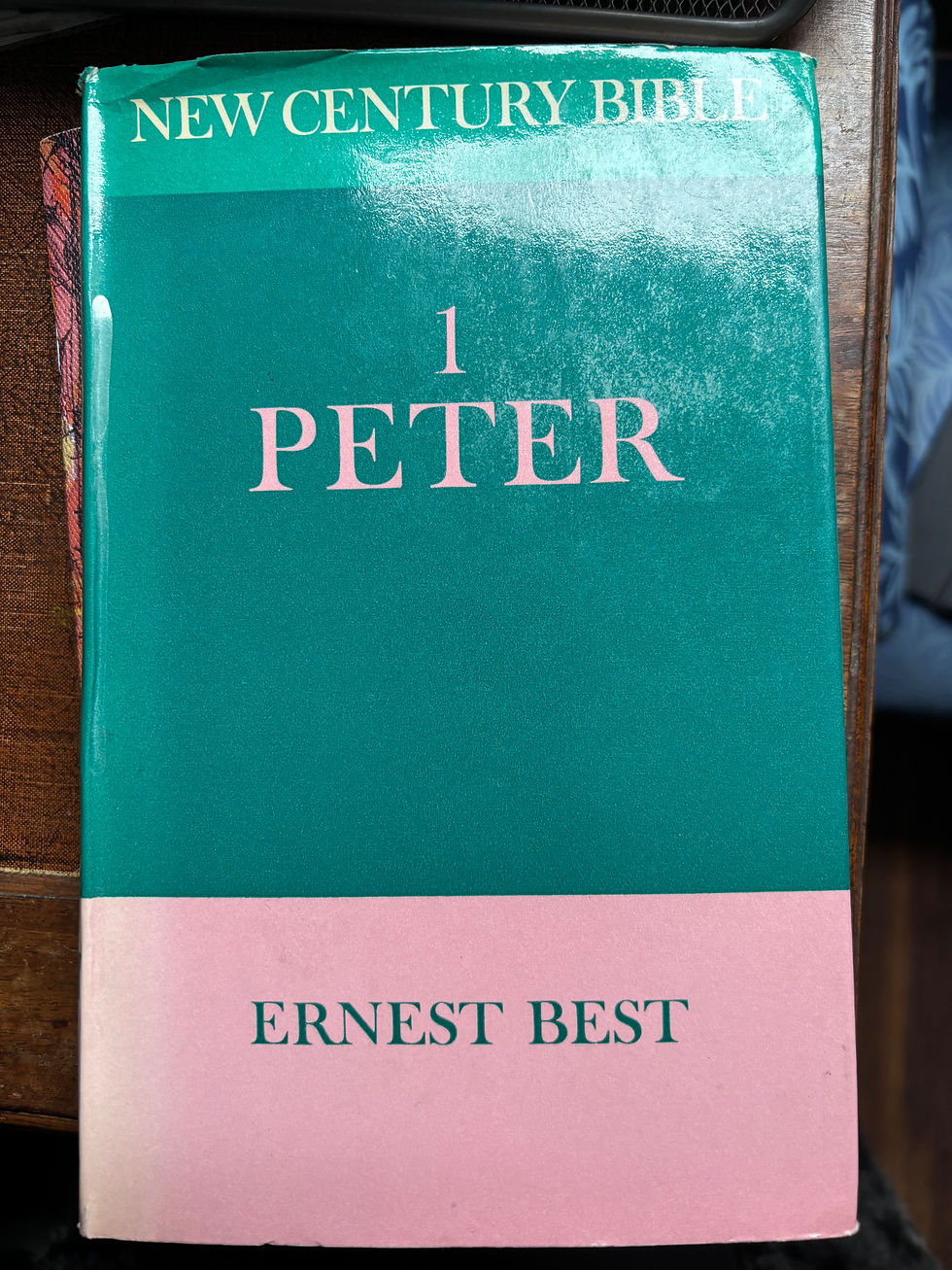D-Day: Books, Kenya and Dad
- Debbie Challis
- Aug 3, 2025
- 3 min read
Several months after dad died, I went through his books to determine what should go to a bookseller and what we should keep. He had got rid of a lot of his books – mainly the sociology and history ones much to my consternation – when he retired and down sized from a vicarage to a bungalow. I remember reading his R. H. Tawney’s Religion and the Rise of Religion, a blue penguin edition. Several of my friends borrowed his left leaning sociology and history books. They did it with his permission, I just snuck in. What was left in early 2023 were mainly biblical commentaries from the 1960s through to the 1990s.

I picked up the one on 1 Peter written by Ernest Best, with the bookseller in Nairobi listed, and checked the date that dad wrote in it – iv. Ix. 75 – D-Day! My date of birth. I realised that D-Day! referred to me. Peter is the New Testament book supposedly (but almost definitely not) written by Jesus’ first disciple Peter. It is written as a letter to people across Asia Minor (western Turkey) and best known for the edict ‘women obey your husbands; men honour your wives’. Bah. Best argues that the actual Greek is much more ambiguous than that reading and the idea of the ‘weaker vessel’ applies to being mortal, not just women.
I was interested to read that the writer Ernest Best had ‘almost unimaginable knowledge of ancient Greek language, history, and literature’ (McGahey Blog). Sure enough, my dad had put a postcard I had brought him from a depiction of the last supper from ‘Our Lady at Kritsa’ in Crete. I went there in July 1997 and it is one of the most beautiful Byzantine churches I have ever seen (and I’ve seen a lot) and rivals 15thC Florence. Well worth the walk in the heat, though I’m not sure my best friend Harry has ever quite forgiven me. Of course, I kept the book and the postcard.


I also kept some of dad’s other books on African religions by John S. Mbiti, who died in 2019 and asked of European churches ‘We have eaten with you your theology. Are you prepared to eat with us our theology?’. Mbiti pointed out that African religions, customs and theology bore as much right to be considered as ancient religious practice as Buddhism or Hinduism.
And then, as I revisited these books ahead of my flight to Nairobi tomorrow, out slipped this card - a copy of an identity card carried by all Black Africans in apartheid South Africa. It had been reproduced by the Society of the Propagation of the Gospel, I assume as part of their

anti-apartheid campaign as it refers to photographs in an exhibition. The Pitt Rivers Museum has put together research on an exhibition A People Apart. The S. P. G. displays Colour Conflict in Africa that was shown at St Martins in 1955 and – presumably – travelled elsewhere later or in different variations. . . Dad would have been only 15 in 1955. Having recently worked with the Anti-Apartheid Legacy to display the activist cartoons and beautiful work of Norman Kaplan in All Shall Be Afforded Dignity at the Portico Library, it seems a strange symmetry.

Tomorrow, I fly out to Nairobi with my mum and in just under a week we go to Kisumu, by Lake Victoria Nyanza. It is the first time I have been back since a baby and another ‘D-Day!’


